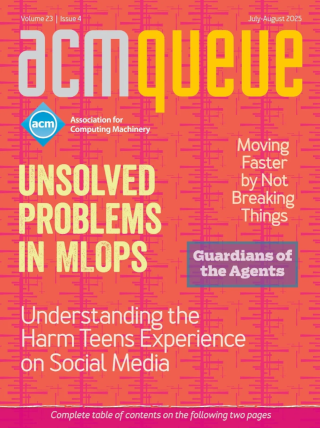
Improvement on End-to-End Encryption May Lead to Silent Revolution:
Researchers are on a brink of what could be the next big improvement in communication privacy.
Privacy is an increasing concern, whether you are texting with a business associate or transmitting volumes of data over the Internet. Over the past few decades, cryptographic techniques have enabled privacy improvements in chat apps and other electronic forms of communication. Now researchers are on the brink of what could be the next big improvement in communication privacy: E2EEEE (End-to-End Encryption with Endpoint Elimination). This article is based on interviews with researchers who plan on presenting at a symposium on the topic scheduled for April 1, 2023.
DevEx: What Actually Drives Productivity:
The developer-centric approach to measuring and improving productivity
Developer experience focuses on the lived experience of developers and the points of friction they encounter in their everyday work. In addition to improving productivity, DevEx drives business performance through increased efficiency, product quality, and employee retention. This paper provides a practical framework for understanding DevEx, and presents a measurement framework that combines feedback from developers with data about the engineering systems they interact with. These two frameworks provide leaders with clear, actionable insights into what to measure and where to focus in order to improve developer productivity.
Beyond the Repository:
Best practices for open source ecosystems researchers
Much of the existing research about open source elects to study software repositories instead of ecosystems. An open source repository most often refers to the artifacts recorded in a version control system and occasionally includes interactions around the repository itself. An open source ecosystem refers to a collection of repositories, the community, their interactions, incentives, behavioral norms, and culture. The decentralized nature of open source makes holistic analysis of the ecosystem an arduous task, with communities and identities intersecting in organic and evolving ways. Despite these complexities, the increased scrutiny on software security and supply chains makes it of the utmost importance to take an ecosystem-based approach when performing research about open source. This article provides guidelines and best practices for research using data collected from open source ecosystems, encouraging research teams to work with communities in respectful ways.
Cargo Cult AI:
Is the ability to think scientifically the defining essence of intelligence?
Evidence abounds that the human brain does not innately think scientifically; however, it can be taught to do so. The same species that forms cargo cults around widespread and unfounded beliefs in UFOs, ESP, and anything read on social media also produces scientific luminaries such as Sagan and Feynman. Today's cutting-edge LLMs are also not innately scientific. But unlike the human brain, there is good reason to believe they never will be unless new algorithmic paradigms are developed.
OS Scheduling:
Better scheduling policies for modern computing systems
In any system that multiplexes resources, the problem of scheduling what computations run where and when is perhaps the most fundamental. Yet, like many other essential problems in computing (e.g., query optimization in databases), academic research in scheduling moves like a pendulum, with periods of intense activity followed by periods of dormancy when it is considered a "solved" problem. These three papers make significant contributions to an ongoing effort to develop better scheduling policies for modern computing systems. The papers highlight the need for better, more efficient, and more flexible OS schedulers; open up new areas of research; and demonstrate the importance of continued development and innovation in OS scheduling policies.
The Human Touch:
There is no substitute for good, direct, honest training.
The challenge of providing a safe communications environment in the face of such social engineering attacks isn't just the technology; it's also people. As anyone who has done serious work in computer security knows, the biggest problems are between the keyboard and the chair. Most people by default trust other people and are willing to give them the benefit of the doubt.
You Don't know Jack about Application Performance:
Knowing whether you're doomed to fail is important when starting a project.
You don't need to do a full-scale benchmark any time you have a performance or capacity planning problem. A simple measurement will provide the bottleneck point of your system: This example program will get significantly slower after eight requests per second per CPU. That's often enough to tell you the most important thing: if you're going to fail.



